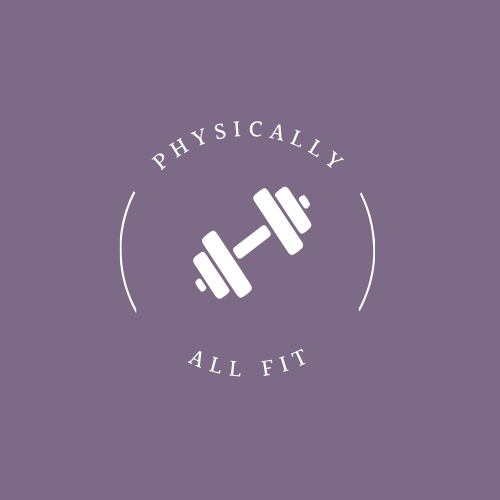As we age, our bodies undergo many changes, including those that affect our cardiovascular health. Maintaining heart health becomes very important to the body’s overall health. In this article, let us explore the link between cardiovascular fitness and aging, with practical tips to keep your heart strong and healthy as you get older and wiser.
The gradual decrease in muscle mass and thus in muscle function are inevitable aspects of the natural aging process. As individuals advance in age, these physiological changes will definitely occur, affecting multiple aspects of physical performance and overall health. This decline in muscle mass and its function is a complex process regulated by numerous factors, including hormonal changes, reduced physical activity, and changes in protein metabolism.
Understanding Cardiovascular Fitness
Cardiovascular fitness refers to the ability of the heart, lungs, and blood vessels to efficiently deliver oxygen and nutrients to the body’s tissues during physical activity. It is a key component of overall fitness and plays a vital role in maintaining good health, especially as we age.
The Impact of Aging on Heart Health
Here is a list of changes in cardiovascular function as we age:
1. Cardiac Output reduces
The ability of the heart to pump blood reduces with age, leading to a reduction in cardiac output. This means that the blood reaching the different tissues during a physical activity contains less oxygen
2. Arteries Stiffen
Arteries anyway naturally become stiffer with age, which can affect blood flow and increase the risk of high blood pressure and other cardiovascular diseases. The primary reason for this stiffening being fatty deposits on the vessel walls with age causing structural changes in them. This fatty buildup narrows down the vascular lumen and thus increases their stiffness.
3. Decline in Muscle Mass
Aging is related to a loss of muscle mass, including the heart muscle. The repercussions may be related to a declined heart’s ability to contract effectively and pump blood efficiently.
4. Changes in Blood Vessel Function
The function of blood vessels, including the ability to dilate and constrict, may decline with age, affecting blood pressure regulation and overall cardiovascular health.
Tips for Maintaining Heart Health
While aging can bring changes to cardiovascular function, there are several strategies you can incorporate into your lifestyle to promote heart health:

1. Regular Exercise
Engage yourself in regular cardiovascular exercise such as walking, cycling, swimming, or aerobic workouts. Try to get at least 150 minutes of moderate-intensity exercise per week, as recommended by health guidelines.
For example; Adults more than 65 years of age:
can have 30 minutes a day, 5 days a week of moderate-intensity activity such as brisk walking. Or they can prefer 75 minutes a week of vigorous-intensity activity such as hiking or jogging or running.
2. Strength Training
Include strength training exercises to maintain muscle mass and support overall cardiovascular function. Focus on exercises that target major muscle groups, such as squats, lunges, and chest presses. Dedicate at least two sessions a week to build strength.
3. Healthy Diet
Adopt a balanced and heart-healthy diet rich in fruits, vegetables, whole grains, lean proteins, and healthy fats. Avoid or limit intake of saturated and trans fats, sodium, and added sugars. This can alone protect you from developing cardiovascular diseases and others like Diabetes.
Take an adequate amount of protein to maintain muscle mass and chopped veggies/salads or fruits to keep up with your micronutrient requirements.
Stay hydrated with WATER. Avoid sugar loaded drinks packed in pet bottles.
Simple alterations in your daily food choices can go a long way.
4. Manage Stress
Practice stress-reducing techniques such as meditation, deep breathing exercises, yoga, or tai chi. Chronic stress can negatively impact heart health, so finding ways to manage stress is important.
5. Maintain a Healthy Weight
Obesity is a big risk factor for cardiovascular diseases. Maintaining a healthy weight not only reduces the strain on your heartbut also lowers the risk of these diseases.
Not only obesity, but being underweight is also not quite right. Aim for a body mass index (BMI) within the healthy range for your age and height. The relation between weight and disease risk is screened using factors like BMI and waist circumference, though these are only tools for screening and not diagnostic
6. Get Regular Check-ups
Visit your physician regularly for check-ups and screenings to monitor your heart health, blood pressure, cholesterol levels, and overall cardiovascular risk.
7. Avoid Tobacco and Limit Alcohol
Quit smoking if you do, as it significantly increases the risk of heart disease. Limit alcohol intake to moderate levels, as excessive alcohol consumption can harm your heart. Quitting them helps in maintaining cognitive function and mental clarity, helping better sleep quality, and enhancing overall physical fitness and endurance.
A Quick note on the importance of Warm-up:
Including a proper warm-up routine is unquestionably unavoidable for senior citizens in their exercise sessions. An individually customized warm-up session helps to gradually pump up the heart rate and blood flow to muscles, getting them ready them for the upcoming session. It primes the joints, thus reducing the risk of sprains, and injuries during exercise.
Also, a warm-up enhances flexibility and range of motion, making movements easier and more comfortable. Now this is particularly favourable for seniors who may face stiffness or reduced mobility.
By committing time to warm-up, they can get the most out of their workouts, improve overall performance, and enjoy a safer and more enjoyable exercise experience.
Conclusion
In conclusion, maintaining cardiovascular fitness is essential for promoting heart health as we age. By incorporating regular exercise, healthy eating habits, stress management techniques, and regular check-ups into your lifestyle, you can support your heart’s function and reduce the risk of cardiovascular diseases. Remember, it’s never too late to start taking care of your heart!


3 thoughts on “Cardiovascular Fitness and Aging: Maintaining Heart Health as You Get Older”